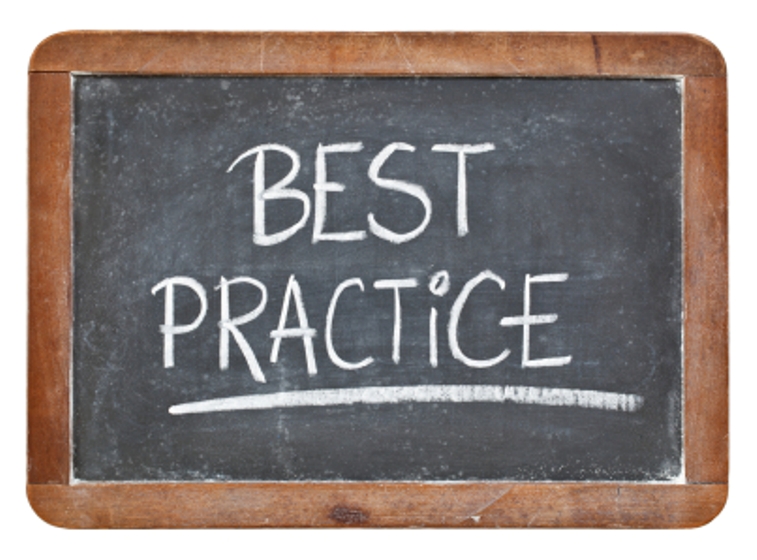You’ve come through the teeth-gnashing decision about hiring a PR consultancy for an ongoing campaign (if you’re still battling, read this post); all directors are on board and you want to make sure that the selection process and appointment are successful. So, how to get the job done? I’m not espousing golden rules endorsed by the PR industry, just my common sense thoughts based on 20-odd years on the agency side of the fence, responding to briefs that can be described like the Clint Eastwood spaghetti western “the good, the bad and the ugly.”
Researching Agencies
If you don’t have a ‘hit list’ of agencies from previous experience, you may be tempted to hop onto the internet and start researching PR agencies straightaway. That’s a sure-fire way to confuse yourself with the huge number of agencies out there, many of which offer similar sounding services. Start with a written brief: you’ve already committed to hiring an agency, so the brief has to be written at some point – before you short-list agencies is good time to do it.
While defining what you want the successful agency to deliver, you can crystallise your thinking on many areas including:
- What type of people you want to represent your brand
- Whether the agency needs specific sector experience to do a fantastic job
- The PR and social media skills needed
- Whether geographic proximity to your main business is important
- Whether international capability is required
- Whether you need purely PR or an integrated marketing campaign
- The budget parameters
With a clear brief and picture of your ideal agency, now is a good time to start investigating them online and those recommended by business contacts. Alternatively, you can use an external match-maker service such as those offered by the Public Relations Consultants Association and the AAR Group. If you use a match-maker, the company will do some of the legwork and provide you with a short-list from their vetted membership (not the universe of PR consultancies).
How Many Agencies to Invite to Pitch?
Resist treating the agencies like candy in a sweetshop – avoid taking on more than you can chew. Inviting lots of agencies may seem like great choice and free ideas, but you’ll create a lot of work for your team: 1-2-1 meetings, requests for further information and responses to questions from all the agencies. Then there will be all the proposals to read and presentations to sit through and evaluate! Exhausting and probably unnecessary – you will find a good agency by seeing between 3 and 4 candidates. Ultimately, it’s your call but agencies have been known to decline to take part if the pitch list is unrealistically high.
Invite the agencies to submit credentials – have short chemistry meetings if necessary, then short-list those that fit the bill. I would suggest asking about consultancy rates at this stage – there is no point inviting agencies to pitch whose rates are well beyond your budget; and it’s unfair to invite them to undergo a full blown pitch process if this is the case.
Preparing A Brief
The richer the content, the stronger the proposals will be. The agencies will be able to develop a sound strategy and creative routes. At a minimum the brief needs to include:
- Overview of the business / products / services
- Market information
- The challenge or problem that needs to be addressed
- Known barriers to success
- Goals and objectives
- Messages if they already exist
- Target markets
- Campaign timeframe
- Budget
- Pitch process with timings/deadlines
- Expectations for the proposal and presentation
- Key contacts
Give Agencies Breathing Space
I’m sure you will want high quality responses to your brief, so give the agencies a decent time frame in which to develop their response. PR campaigns don’t fall “off the shelf” – each one involves research, strategy development; creative brainstorming; ideas development; testing; preparation of the proposals, rehearsal and then the presentation to your team. Once you’ve got through the credentials stage and short-listed agencies, allow at least two weeks for a small pitch and at least four weeks for medium to large scale pitches (the size of the job to be done and the budget will help you decide whether it’s large or small).
Budget – Let the Agencies In!
Many PR buyers think it’s better not to show their hand and give a budget. The problem with not giving even an indicative budget is that you leave the agency in a wilderness, to construct a programme without any financial parameters. Omitting a budget has negative effects: it limits the scope of what agencies present to you because they are erring on the side of caution, or they go in the opposite direction and recommend campaigns that may wildly exceed your budget because a vital piece of information is missing from the brief. You want a win/win situation: agencies that are equipped to do the job thoroughly and proposals that meet your needs and budget. This means giving a budget guideline.
Give Agencies Feedback
Agencies invest a lot of resources in responding to pitch invitations. Pitches are the life blood of PR consultancies and are taken very seriously, plus they’re fun to work on. Sadly someone has to lose. The unsuccessful agencies will welcome constructive feedback on how they handled the pitch and the quality of their proposals. You have had the benefit of a lot of brain power and creative talent; please take a little time to give feedback – this may help them win their next pitch. And you never know you may want to work with them in the future.
Here’s to a successful pitch process for your organisation!
You may also be interested in this blog post: Why Bother to Align Business and PR Strategies.




